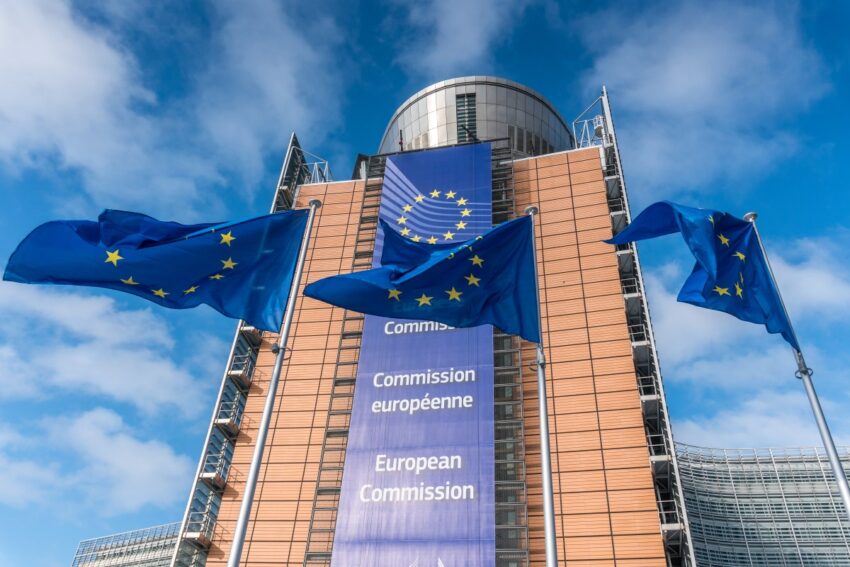
ec finds meta and tiktok breached transparency The European Commission has preliminarily determined that Meta and TikTok have violated transparency rules outlined in the Digital Services Act (DSA), specifically regarding their obligations to provide researchers with adequate access to public data.
ec finds meta and tiktok breached transparency
Overview of the Digital Services Act
The Digital Services Act, which came into effect in the European Union in late 2020, represents a significant regulatory framework aimed at creating a safer digital space for users. It imposes stringent requirements on tech companies to ensure accountability and transparency in their operations. One of the key components of the DSA is the obligation for large online platforms to provide researchers with access to data that is crucial for understanding the impact of their services on society.
By mandating transparency, the DSA seeks to empower researchers, policymakers, and civil society to analyze the effects of online platforms on various issues, including misinformation, hate speech, and data privacy. The act is part of a broader effort by the EU to regulate digital services and protect users from harmful content and practices.
Preliminary Findings Against Meta and TikTok
On October 24, 2025, the European Commission announced its preliminary findings that both Meta, the parent company of Facebook and Instagram, and TikTok, the popular short-video platform, have not complied with the transparency requirements set forth by the DSA. The Commission’s investigation revealed that these companies failed to provide adequate access to public data that researchers need to conduct their analyses.
This finding is significant as it underscores the ongoing challenges that regulators face in ensuring that tech giants adhere to new legal frameworks. The DSA was designed to hold companies accountable, and the preliminary findings against Meta and TikTok indicate that enforcement of these rules may be more complex than initially anticipated.
Implications of Non-Compliance
The implications of the European Commission’s findings are multifaceted. First and foremost, if Meta and TikTok are ultimately found to be in violation of the DSA, they could face substantial penalties. The DSA allows for fines of up to 6% of a company’s global revenue, which could amount to billions of dollars for both firms, given their extensive global reach.
Moreover, the lack of transparency can hinder efforts to understand the societal impacts of these platforms. Researchers rely on access to data to study issues such as the spread of misinformation, user engagement patterns, and the effects of algorithms on content visibility. Without this data, it becomes increasingly difficult to formulate effective policies and interventions that address the challenges posed by these platforms.
Impact on Researchers and Policymakers
The European Commission’s findings highlight a critical issue for researchers and policymakers who depend on data from social media platforms to inform their work. The DSA was designed to facilitate access to data, thereby enabling a more informed public discourse around the implications of digital services. When companies like Meta and TikTok fail to comply with these transparency requirements, it not only undermines the DSA’s objectives but also stifles academic research and public understanding.
Researchers have expressed concerns that without adequate access to data, their ability to conduct meaningful studies will be severely limited. This could lead to a lack of evidence-based policymaking, which is essential for addressing the challenges posed by digital platforms. Policymakers may find themselves operating in a vacuum, unable to craft regulations that effectively address the nuances of online behavior and its consequences.
Reactions from Stakeholders
The preliminary findings have elicited a range of reactions from various stakeholders, including policymakers, researchers, and the companies involved. Many researchers have welcomed the Commission’s findings, viewing them as a necessary step toward holding tech companies accountable for their data practices. They argue that transparency is essential for fostering trust between platforms and users, as well as for ensuring that the digital ecosystem operates fairly and responsibly.
Policymakers have also expressed support for the Commission’s actions, emphasizing the importance of enforcing the DSA to protect users and promote accountability in the tech industry. Some have called for even stricter measures to ensure that companies comply with transparency requirements, arguing that the current penalties may not be sufficient to deter non-compliance.
Meta and TikTok’s Responses
In response to the preliminary findings, both Meta and TikTok have defended their practices. Meta stated that it is committed to transparency and has been working to provide researchers with access to data in a responsible manner. The company emphasized that it has implemented various initiatives aimed at promoting research and understanding of its platforms.
Similarly, TikTok expressed its commitment to compliance with the DSA and stated that it is actively engaging with researchers to facilitate data access. The company highlighted its efforts to create a safer online environment and its willingness to collaborate with regulators to achieve these goals.
Future Considerations
The European Commission’s preliminary findings against Meta and TikTok raise important questions about the future of digital regulation in the EU and beyond. As the DSA continues to evolve, it will be crucial for regulators to develop effective enforcement mechanisms that ensure compliance from tech companies. This may involve not only imposing fines but also establishing clearer guidelines for data access and transparency.
Furthermore, the situation underscores the need for ongoing dialogue between tech companies, researchers, and regulators. Collaborative efforts can help bridge the gap between the need for transparency and the operational realities of data management. By working together, stakeholders can develop solutions that promote accountability while also respecting user privacy and data security.
Global Implications
The findings against Meta and TikTok may have broader implications beyond the European Union. As other countries and regions consider similar regulatory frameworks, the challenges faced by the EU could serve as a cautionary tale. The need for transparency and accountability in the digital space is a global concern, and the responses of major tech companies to these regulations will likely influence how other jurisdictions approach digital governance.
Moreover, the DSA’s emphasis on transparency could inspire similar initiatives in other parts of the world, potentially leading to a more unified approach to regulating digital platforms. As countries grapple with the complexities of online content moderation, data privacy, and user safety, the lessons learned from the EU’s experience with the DSA will be invaluable.
Conclusion
The European Commission’s preliminary findings against Meta and TikTok highlight the ongoing challenges of enforcing transparency in the digital age. As the DSA aims to create a safer online environment, the need for compliance from tech giants is paramount. The implications of these findings extend beyond potential fines; they affect researchers, policymakers, and the broader public discourse surrounding digital services. Moving forward, it will be essential for all stakeholders to engage in constructive dialogue to foster accountability and transparency in the tech industry.
Source: Original report
Was this helpful?
Last Modified: October 24, 2025 at 11:39 pm
1 views















